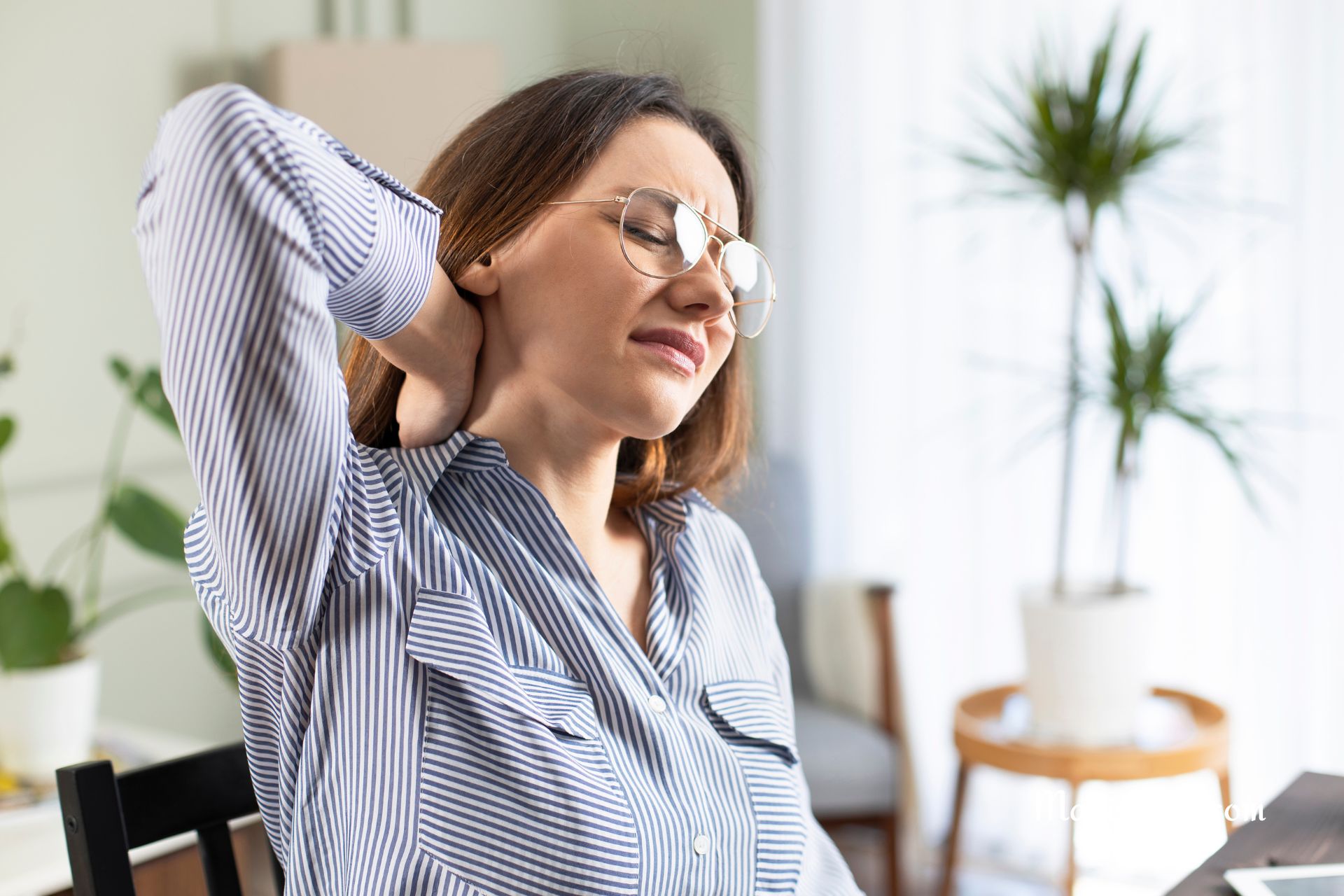From Stiff Neck To Leg Pain, Signs That Show Vitamin D Deficiency
Vitamin D is very important for our body. It helps us absorb calcium, which makes our bones and muscles strong. When you do not get enough vitamin D, you might feel pain in your neck or legs. This article will explain what vitamin D does and how to know if you might be low in vitamin D.

What is Vitamin D?
Vitamin D is a nutrient that our body needs to stay healthy. Our skin makes vitamin D when it is exposed to sunlight. You can also get it from some foods and vitamins. Vitamin D helps control the amount of calcium and phosphorus in our blood. These minerals are needed to build and keep strong bones. Without enough vitamin D, our bones and muscles may not work well.
How Vitamin D Works in the Body
The body uses vitamin D in a few important ways:
- Bone Health: Vitamin D helps your intestines absorb calcium from food. Calcium makes your bones hard and strong.
- Muscle Function: Muscles need calcium to move and work properly. Without vitamin D, your muscles might feel weak or stiff.
- Immune System: Vitamin D helps your body fight off germs and reduces swelling when you get hurt or sick.
Signs You Might Have a Vitamin D Deficiency
A lack of vitamin D can manifest in different ways. The following signs may indicate that your body is not getting enough vitamin D.
Stiff Neck
A stiff neck means that the muscles in your neck are tight and hurt when you move. This can happen if your body does not have enough vitamin D to help your muscles work well. Although other problems can cause a stiff neck, vitamin D deficiency is one possibility.
Leg Pain
If you have leg pain, it might be because your muscles or bones are not strong enough. Vitamin D helps keep your muscles strong and your bones healthy. Without it, you might feel pain when you walk or run. The pain might be dull or sharp and may get worse with activity.
Fatigue and Weakness
Many people with low vitamin D feel very tired. This fatigue can make it hard to do everyday activities. When your muscles do not get enough vitamin D, they may feel weak, and you might get tired quickly after doing something.
Bone and Joint Pain
Pain in your bones or joints, like in your lower back, hips, or legs, can also be a sign. Without enough vitamin D, your bones might lose their strength, causing discomfort. Joint pain may happen because the muscles and bones around the joint are not as strong as they should be.
Muscle Cramps
Muscle cramps are sudden, sharp pains in your muscles. They can happen during exercise or even when you are resting. When you have a vitamin D deficiency, your muscles might cramp more easily. These cramps can make it hard to move normally.
Other Signs
Some people may feel sad or have changes in their mood when they are low in vitamin D. Although many things can change your mood, a lack of vitamin D might be one reason. Also, if you have cuts or wounds that take a long time to heal, it might be linked to low vitamin D.
Who Is at Risk for Vitamin D Deficiency?
Certain people are more likely to have low levels of vitamin D:
- People with Little Sunlight: If you live in a place with little sunlight, you may not make enough vitamin D.
- Darker Skin: People with darker skin have more melanin, which makes it harder for the skin to produce vitamin D.
- Older Adults: As we get older, our skin makes less vitamin D.
- People Who Are Overweight: Being overweight can affect how your body uses vitamin D.
- Certain Health Conditions: Some health problems can also affect your vitamin D levels.
How to Increase Your Vitamin D Levels
There are safe ways to get more vitamin D if you are low.
Sunlight Exposure
The best way to get vitamin D is to spend time in the sun. Try to go outside during the middle of the day when the sun is strong. Even a short time in the sun can help your body make vitamin D. Remember to protect your skin if you are outside for a long time.
Diet
Eating foods rich in vitamin D can also help. Here are some examples:
- Fatty Fish: Salmon, mackerel, and tuna are good sources.
- Egg Yolks: Eggs contain some vitamin D.
- Fortified Foods: Many kinds of milk, cereal, and orange juice have vitamin D added to them.
Supplements
If you cannot get enough vitamin D from sunlight and food, you might need supplements. These come in pills, liquids, or gummies. It is best to talk to a doctor before taking vitamin D supplements. The doctor can tell you how much you need based on your blood test results.
When to See a Doctor
If you have a stiff neck, leg pain, fatigue, or muscle cramps, you should see a doctor. A doctor can order a blood test to check your vitamin D levels. Early treatment can help avoid problems like weak bones and muscles. The doctor can also check for other causes of your symptoms.
Takeaway
Vitamin D is very important for healthy bones and muscles. Not getting enough vitamin D can lead to stiff neck and leg pain, fatigue, and other symptoms. If you notice these signs, consider checking your vitamin D levels. You can increase vitamin D through sunlight, a healthy diet, and supplements if needed. If symptoms continue, a visit to the doctor is necessary.
